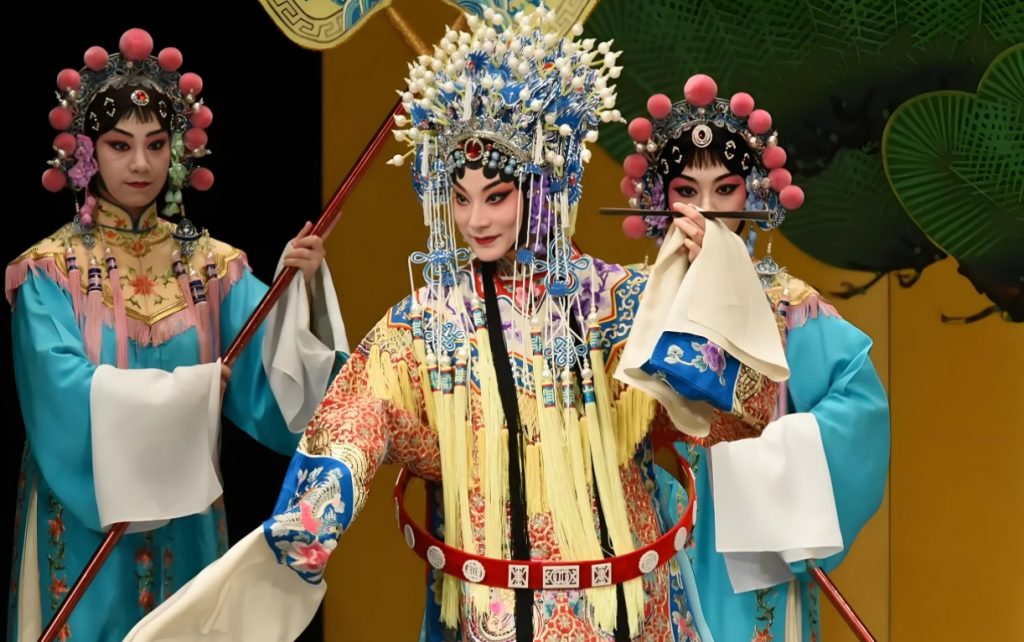The Beijing Opera “Drunken Concubine” is a classic play with great artistic charm, also known as “Baihua Pavilion”, based on the story of Yang Guifei, a historical figure in the Tang Dynasty of China. The play has been carefully created and performed by the renowned Peking Opera performer Mr. Mei Lanfang, and has become one of the representative plays of the Mei School, widely known and loved by audiences.
1、 Plot Summary
The Drunken Concubine “mainly tells the story of Yang Yuhuan, who was deeply loved by Emperor Ming of Tang, and the two of them made an appointment to enjoy flowers and drink at the Baihua Pavilion. However, Emperor Ming of Tang failed to arrive as scheduled and instead went to the Palace of Concubine Jiang (also known as Mei Fei or Jiang Caiping). After learning about this, Yang Yuhuan was filled with shame and anger, unable to dispel his myriad worries. Therefore, he ordered Gao Lishi and Pei Lishi to add cups and cups to alleviate his sorrows, and finally drank until he was drunk and returned to the palace in despair.

2、 Artistic Features
Character shaping: The image of Yang Yuhuan in the drama is vividly portrayed, not only with unparalleled beauty, but also with rich emotions. From anticipation to disappointment, and then to resentment, her mood changes are vividly portrayed through the performing arts of Peking Opera. At the same time, the images of supporting role such as Gao Lishi also have their own characteristics, which add color to the plot.
Performing Arts: The performance art of the Peking Opera “Drunken Concubine” has reached a very high level. Master Mei Lanfang vividly portrayed Yang Yuhuan’s inner world through his graceful figure, singing style, and facial expressions. Especially the dance movements and vocal design in the play, which not only conform to the character’s personality and plot development, but also fully demonstrate the unique charm of Peking Opera art.
Music and singing style: The music design of the play is clever, and the singing style is gentle and pleasant. Especially the use of “Siping Tune” changes with the emotions of the characters, making the entire play full of musicality and rhythm.
3、 Cultural Value
The Drunken Concubine “is not only an excellent Peking Opera play, but also has important cultural value. It showcases the style of ancient court life and the complexity of character traits through the re creation of historical figures. At the same time, the play also inherits and promotes the art of Peking Opera, leaving valuable cultural heritage for future generations.
4、 Social impact
Since Master Mei Lanfang created and performed “Drunken Concubine”, the play has become a classic on the Beijing Opera stage. It is not only popular at home, but also spread to many countries and regions overseas, providing a window for people around the world to understand Chinese culture and Peking Opera art. In addition, ‘Drunken Concubine’ has inspired countless artists and audiences to create and enjoy, making important contributions to the inheritance and development of traditional Chinese culture.
The Peking Opera ‘Drunken Concubine’ is a classic play that combines artistic, cultural, and social influence. It attracts countless audiences and scholars to come and observe and study it with its unique artistic charm and profound cultural heritage.



